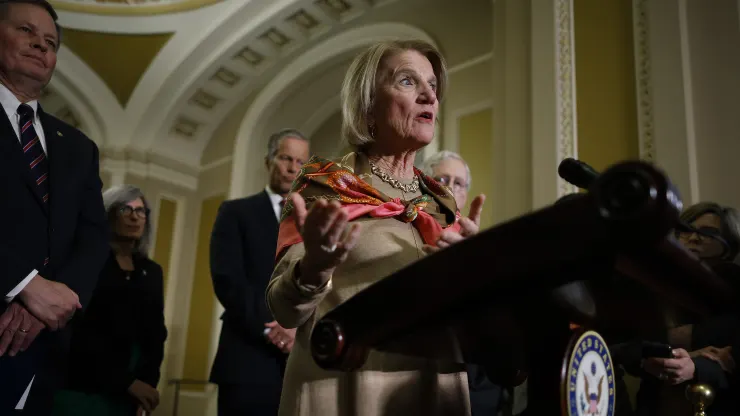WASHINGTON — The Senate on Wednesday voted to overturn a Labor Department rule that permits fiduciary retirement fund managers to consider climate change, good corporate governance and other factors when making investments on behalf of pension plan participants.
The final vote in the Senate was 50-46, with two Democratic senators crossing party lines to support the repeal bill: Sen. Joe Manchin of West Virginia and Sen. Jon Tester of Montana. Both are up for reelection next year in conservative-leaning states.
President Joe Biden said Monday that he will veto the Senate bill if it comes to his desk — the first veto of his presidency.
The House version of this bill passed Tuesday with the support of every Republican and one Democrat, after which it advanced surprisingly quickly to the Senate.
Buoyed by wins in November’s midterm elections, Republicans have vowed to use their new clout in Washington to take aim at “woke capitalism” — starting with an all-out assault on environmental, social, and corporate governance, or ESG, investing policies. ESG funds are designed to attract socially conscious investors with portfolios of companies that, for example, do not contribute to climate change or that practice good corporate governance.
Speaking on the Senate floor Wednesday, Majority Leader Chuck Schumer, D-N.Y., defended the Labor Department rule, which went into effect in November of last year.
“This isn’t about ideological preference — it’s about looking at the biggest picture possible for investors to minimize risk and maximize returns,” said Schumer. “Why shouldn’t you look at the risks posed by increasingly volatile climate incidents?”
Democrats also noted that the Labor Department rule was voluntary, so it didn’t require fund managers to actually do anything.
Instead, it released them from the previous rules, enacted during the Trump administration, which required that managers of federally governed pension funds limit their investment decisions only to what would generate the highest returns, effectively prohibiting them from considering other factors.
Republican critics of the Labor Department’s new rule say it undermines 401(k) retirement funds by allowing investment managers to put ideological issues such as climate change ahead of investment returns.
“The last thing we should do is encourage fiduciaries to make decisions with a lower rate of return for purely ideological reasons,” Sen. Mike Braun of Indiana, the Senate’s lead sponsor of the bill, said earlier this month.
Republican House committee chairs and presidential hopefuls such as Florida Gov. Ron DeSantis have put Wall Street’s ESG investing policies near the top of their political hit lists, part of an effort to tap into the populist economic sentiment championed by former President Donald Trump.
The anti-ESG campaign has also been bolstered by a small army of conservative nonprofits and advocacy groups, many with ties to wealthy GOP political contributors and fossil fuel companies.
Flush with donor money, organizations with names such as the 1792 Exchange and Consumers’ Research have run ad campaigns criticizing top investment firms including BlackRock, Vanguard and State Street for what they say is politically motivated investing.

